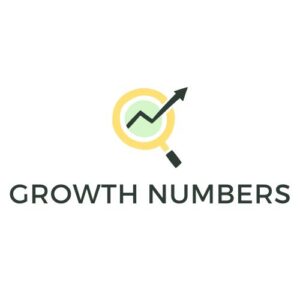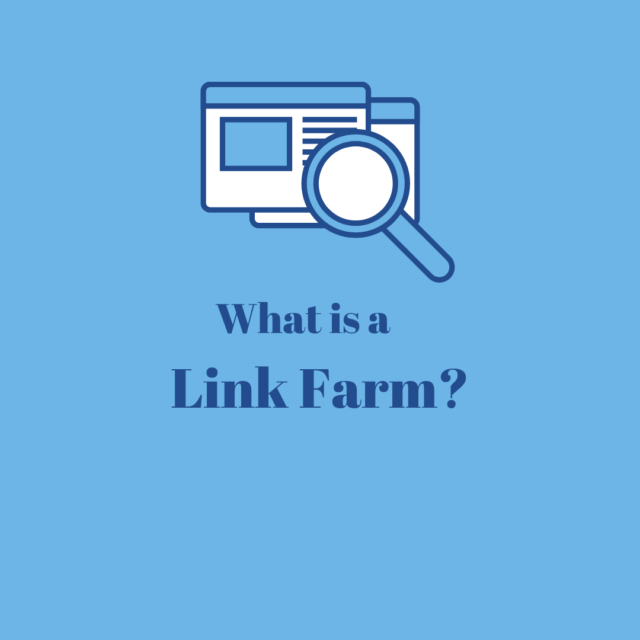It is important to recognize that not all backlinks carry the same weight. While it is advantageous to acquire inbound links for your website, there are certain types of backlinks that you should avoid including in your backlink profile.
Undesirable incoming links, such as those obtained through the practice of link farming, have the potential to trigger a Google Penalty, which can significantly harm your website’s rankings on search engine result pages (SERPs).
A Google Penalty, also known as a manual action, occurs when a human reviewer assesses your website’s backlink profile and identifies the presence of unnatural links that are deliberately created to manipulate or deceive search engines.
This penalty can result in a detrimental decrease in web traffic and may even lead to the complete removal of your website from SERPs.
In this article, we will explore the following topics:
– Understanding the concept of link farming.
– Techniques for detecting link farms.
– Real-life instances of link farms.
Key Takeaways
- Link farms are networks of sites that interlink to manipulate search engine rankings, which can ultimately harm a site’s credibility and ranking.
- Cloaking and doorway pages are deceptive techniques that present different content to search engines and users, often associated with link farms.
- A comprehensive backlink audit can identify toxic links, and focusing on high-value links over quantity is crucial for sustainable SEO.
- Strategic link building involves targeting valuable pages, optimizing content quality, and fostering long-term partnerships for backlinks.
- Adapting to search engine algorithm changes is essential, with a focus on innovative SEO techniques and maintaining digital relevance.
What Is a Link Farm?
A link farm is a website designed solely to provide links to other websites, without any intention of sharing valuable content or information with users.
These sites are created with the explicit purpose of boosting the backlink profiles of legitimate websites, often through manipulative means.
Engaging with link farms can have serious consequences for the long-term success of a website. Search engines like Google penalize sites that are associated with link farms, as this practice is considered a black hat tactic that artificially inflates page rankings.
Website owners and marketers must avoid any involvement with link farms to maintain their credibility and search engine rankings.
Link farming involves selling links to other websites, either by inserting them into existing content or publishing guest posts. This unethical practice is a quick way for site owners to make money and for brands to acquire inbound links.
However, the risks associated with link farming, such as heavy ranking penalties and potential site crashes, far outweigh any short-term benefits. It is essential to adhere to ethical SEO practices and avoid link farms to safeguard the reputation and visibility of a website.
How to Identify a Link Farm?
1) Excessive Outbound Links

Link farms employ a deceptive tactic of hosting an excessive number of outbound links to manipulate search engine rankings. To identify websites promoting link farms, it is crucial to check the number of linked sites a website possesses. Ahrefs is a useful tool that can provide insights into the quantity of links on a particular website.
2) Irrelevant and Poorly Written Content
One of the key indicators of a link farm is the lack of focus on quality content. These websites often exhibit poorly researched and irrelevant content. Original content is rarely found on such platforms as they rely heavily on publishing guest posts. If you require assistance in generating high-quality content, tools like Skaleloops can be utilized.
3) Spammy Domain Names

When browsing the internet, you may come across websites with peculiar domain names that are filled with irrelevant keywords. These are commonly referred to as spammy domain names. Link farms frequently employ this strategy by creating domain names that have no clear relevance or association with their content. It is important to be cautious of such websites as they can negatively impact your SEO metrics.
4) Don’t be fooled by SEO Metrics
It is important to note that a website with a well-designed appearance and a relatively high Domain Rating (DR) may still be considered part of a link farm. The DR metric provided by Ahrefs, along with similar metrics from other tools, is not foolproof and can be subject to manipulation by some SEOs and webmasters who aim to artificially boost their site’s DR to sell links.
Instead of solely relying on DR, a more reliable metric to consider is a website’s organic search traffic and its historical organic traffic data. This information can provide insights into the site’s growth trajectory and whether it is attracting genuine visitors.
Furthermore, it is advisable to analyze the keywords for which a website is ranking. For instance, if a website that has been around for several years is only ranking for a small number of keywords, it may raise suspicions. Additionally, if the content on the site appears to be overly saturated with keywords, it is recommended to proceed with caution and potentially avoid engaging with such a website.
History & Relationship of Google Algorithm Updates and Link Farms
Google’s PageRank algorithm revolutionized the way links were evaluated by considering their quality rather than just counting them. This meant that link farms, although still capable of functioning, required additional effort to be effective.
In an attempt to deceive PageRank, webmasters resorted to reciprocal linking, where they exchanged links between their sites instead of creating dense networks.
However, as Google continued to enhance its algorithms, link farms became less and less effective and more risky. Google introduced various updates such as Google Panda, Google Penguin, and the SpamBrain system to target low-quality content farms, penalize manipulative linking schemes, and detect spammy links.
These updates aimed to identify unnatural linking patterns that impacted the quality of search results. The SpamBrain system, in particular, has been continuously adapting to link farming tactics and has penalized a significantly higher number of websites in recent years. In fact, Google’s most recent update to the spam prevention system, implemented in 2022, ensures that unnatural linking patterns no longer have a positive impact on a website’s ranking.
Why Does Google Hate Link Farming?
Google’s guidelines on link building are stringent, with a strong stance against link farms.
These link farms, composed of low-quality, spammy links, offer no real value to users and can negatively impact a website’s SEO performance.
Google now emphasizes the quality of backlinks over quantity, making the operation of link farms prohibited due to their deceptive nature and lack of user value.
The content associated with link farms typically consists of thin, low-quality pieces that do not contribute meaningfully to the user experience. These sites are often poorly developed and lack a logical flow path between the interconnected content pieces.
Additionally, the subjects covered by the websites linked through link farms are often unrelated, further diminishing the value of these links in the eyes of Google’s ranking algorithm.
Google has continuously strengthened its position against link farms through policy and algorithm updates, such as the evolution of Penguin.
This algorithm underwent multiple upgrades before being fully integrated into Google’s core PageRank algorithm in 2016.
The search engine giant is now focused on not only penalizing the publishers of low-quality backlinks but also blacklisting and deindexing sites that benefit from inbound links originating from link farms, as exemplified by the case of JCPenny.com.
Why is Link Farming harmful To Your Ranking?
There are several negative consequences associated with link farming that can be detrimental to your website.
- Firstly, engaging in link farming can result in penalties from search engines like Google. If you are found to be participating in this practice, your website may face the severe consequence of being completely banned from search engine results.
- Additionally, even if you manage to avoid penalties, the links obtained from link farms are typically of low quality. As a result, these links will not contribute to improving your website’s ranking in search results. In fact, they may have a negative impact on your rankings by reducing the click-through rate (CTR) and increasing the bounce rate.
- Lastly, link farming can significantly harm your website’s reputation. Being associated with a link farm can lead people to perceive your site as untrustworthy and of low quality. Consequently, this negative perception can discourage potential customers or visitors from engaging with your site or doing business with you.
- Instead of resorting to link farming, it is advisable for webmasters to focus on creating high-quality content that naturally attracts backlinks. By prioritizing the creation of valuable and engaging content, you can improve your website’s ranking without risking the negative consequences associated with link farming.
How to Protect Against Link Farming?
Implement the use of nofollow tags: When encountering questionable sources, it is advisable to utilize the nofollow tag when linking to them. This action sends a signal to Google that the website is not to be trusted, helping to protect your own website from potential harm.
Steer clear of paid links whenever possible: Paid links have the potential to cause issues as search engines may interpret them as link farming activities. It is best to avoid such links to maintain the integrity of your website and prevent any negative impact on your search engine rankings.
Emphasize quality over quantity when it comes to backlinks: It is crucial to prioritize high-quality links over a large quantity of links. Even if you only manage to secure one high-quality link per month, it holds more value than numerous irrelevant links that could be associated with link farming. Regularly monitoring your backlinks can help in identifying any potential link farming activities, allowing you to take necessary actions to safeguard your website’s reputation. If you suspect any link farming activities, promptly report them to search engines for appropriate measures to be taken.
How Do I Get Organic Site Links?
While link farming may appear to offer a shortcut to achieving SEO success, it ultimately fails to deliver long-term benefits. In order to attain lasting success, it is crucial to operate your website with integrity and make informed optimization decisions right from the beginning. To help you embark on this journey, here are a few valuable tips to consider.
Make Your Link Choices Carefully
When it comes to selecting outbound links for your content, it is crucial to prioritize the reputation of the websites you choose to link to. Going the extra mile to ensure that the sites you link to are reputable is essential.
It is important to select sites and content that are relevant to your niche. By doing so, you can ensure that the information you provide to your audience is valuable and trustworthy. Additionally, consider the ranking of these sites to further enhance the credibility of your outbound links.
Always remember that when you include an outbound link, you are essentially recommending that particular website to your audience. Therefore, it is vital to choose wisely and only link to sites that you genuinely trust and believe will benefit your readers.
Similarly, exercise caution when requesting inbound links from other site owners. Avoid engaging with individuals who attempt to sell you links. Such practices can lead to serious consequences, as these links are likely being sold to numerous other people as well. It is important to steer clear of any association with link farms and prioritize building genuine, reputable connections.
Directories versus Link Farms
Initially, a link farm and a directory may appear similar, but in reality, they are quite distinct from each other.
Directories are structured and carefully maintained, whereas link farms lack organization and are haphazard in nature.
Directories serve a genuine purpose in assisting individuals in locating relevant information, unlike link farms which do not offer any valuable service to users. Additionally, directories can greatly benefit your SEO strategies and improve your SERP rankings, provided you choose wisely and opt for the most appropriate and industry-specific directories.
Focus on earning organic links
While it is acceptable to request or exchange links with respected peers in your industry, nothing can compare to the authenticity of organic backlinks.
The key to obtaining these valuable backlinks is to concentrate on creating a collection of high-quality, informative content that genuinely benefits your website visitors.
Diversify your content by covering a range of topics within your niche and utilizing various types of media. Take a unique approach to addressing common questions your target audience may have.
By presenting valuable information in an engaging and captivating manner, you can encourage individuals to share and link back to your content.
It is important to note that building a strong portfolio of backlinks through organic methods is a gradual process that requires time and effort.
However, this approach is proven to be the most effective way to establish a sustainable and impactful online presence. By consistently producing valuable content that resonates with your audience, you can gradually increase the number of organic backlinks pointing to your website.
Is a link farm a Private Blog Network?
A private blog network (PBN) and a link farm are not synonymous, although they can be interconnected. PBNs are essentially a collection of websites that individuals utilize to enhance the credibility and ranking of their other owned sites. The primary objective is to optimize the search engine rankings of these member websites.
It would be illogical for a PBN owner to employ their network for the purpose of selling backlinks, as this would attract scrutiny from Google. However, a PBN operator may find a way to generate additional revenue by utilizing certain websites within the network as link farms, under specific circumstances:
- The PBN has already been discovered by a search engine like Google.
- The websites within the network do not transfer any positive ranking to the overall network.
By incorporating link farms into their PBN strategy, operators can potentially maximize their profits while maintaining a level of discretion and avoiding unwanted attention from search engines.
Some Real Examples of Link Farms
- J.C. Penney faced consequences from Google in 2011 for participating in a link farm scheme, resulting in a penalty imposed by Google.
- BMW Germany’s website received penalties from Google in 2006 for using manipulative tactics like doorway pages and link farms to manipulate search rankings.
- Vitaly Borker, an online eyewear retailer, faced penalties from Google in 2010 for operating a link farm to manipulate search rankings and generate website traffic.
- Interflora experienced a temporary decline in search rankings in 2013 after engaging in link farm activities, negatively impacting their visibility on search engines.
- BuildMyRank, a link building service, was deindexed by Google in 2012 due to their involvement in a large-scale link farm operation.
How to Know If Your Off Page SEO Team is Using Link Farms
Regrettably, certain SEO specialists resort to link farming in order to create inbound links for their websites.
This approach allows them to bypass the laborious and costly process of establishing links correctly, such as producing high-quality content and engaging in manual outreach.
Instead, they opt to place backlinks on link farms that they either own or have established relationships with, artificially boosting your Domain Authority (DA). While this may be a quick win for the link builder, it ultimately proves to be a waste of money for the clients.
The challenge lies in identifying which sites the backlink teams will utilize to generate links.
Warning signs to watch out for include guaranteed links, fast link generation, low costs, and lack of tangible results.
It is crucial to engage in open communication with your link-building team to ensure that ethical practices are being followed in building links for your website.
What is the Future of Link Farms?
The future of link farms holds significant potential for change and evolution. As search engine algorithms become more sophisticated, the traditional concept of link farms is gradually losing its effectiveness. However, this does not mean that link farms will become obsolete. Instead, they are likely to transform into more refined and strategic entities that adapt to the evolving digital landscape.













